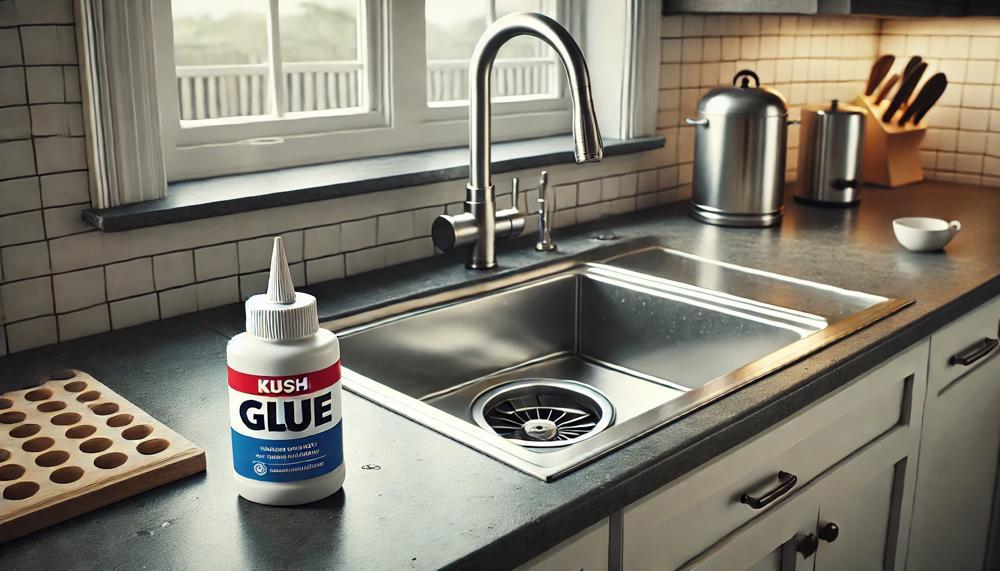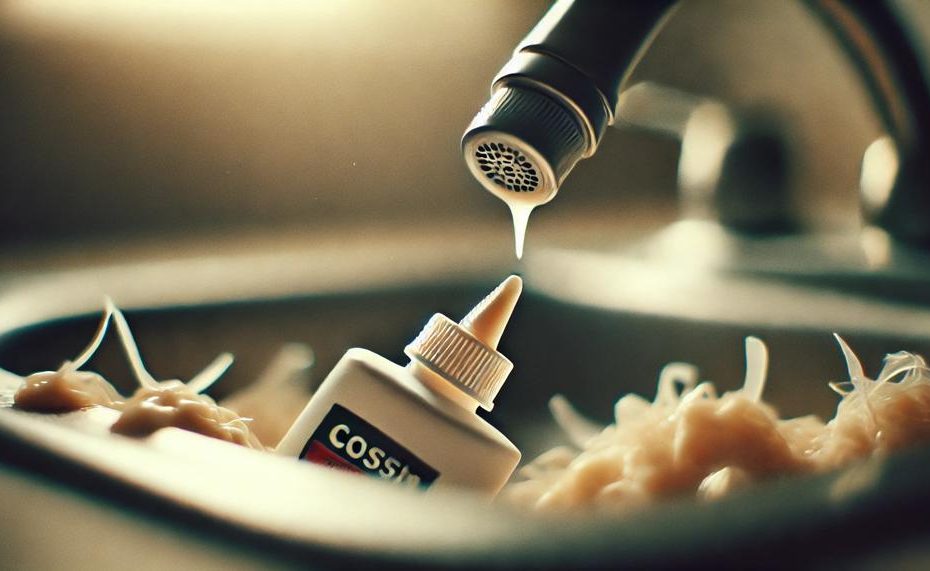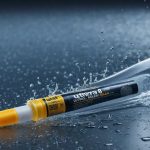No, you should not wash glue down the sink. This might seem like a minor issue, but improper disposal of glue can have surprising and significant consequences. Here’s a quick rundown:
- Water-based glues, like school glue or white glue, may seem harmless. While small amounts might not immediately wreak havoc, they can build up and create nasty clogs in your plumbing over time. Imagine having to deal with a blocked sink because of a few drops of glue.
- Solvent-based glues—think superglue or epoxy—are a different beast altogether. Washing these down the sink can lead to severe environmental damage and costly plumbing problems. These types of glue contain chemicals that can contaminate water sources and are not friendly to aquatic life or your pipes.
For a safer approach, throw any excess glue into the trash, or better yet, take it to a hazardous waste facility if you have a significant amount. This not only protects your home from potential plumbing nightmares but also safeguards our water sources and wildlife. Remember, it’s a small step that makes a big difference.
Table of Contents [show]
What is Glue?
Glue, also known as adhesive, is a non-metallic substance used to bond surfaces together. The process begins with the glue wetting the surfaces and spreading out to maximize contact. During the curing phase, the molecules in the glue cross-link, creating a strong and often permanent bond. This transformation from a liquid to a solid gives glue its remarkable holding power.
How Glue Works
| Step | Description | Examples |
| Wetting | Glue spreads out on the surface to ensure maximum contact area. | Applying white glue to paper. |
| Curing | Molecules cross-link, forming a strong bond as the glue hardens. | Superglue setting on plastic. |
| Bonding | A strong bond is formed, often permanent, holding the materials together. | Wood glue securing pieces of a chair. |
Types of Glue
- Water-based Glues: Includes school glue and white glue. These can be washed down the sink in small amounts but may cause clogs.
- Solvent-based Glues: Includes superglue and epoxy. These should never be washed down the sink due to their potential to harm the environment and damage plumbing.
Proper Disposal of Glue
- Water-based Glues: Dispose of in small quantities via sink, but preferably in the trash.
- Solvent-based Glues: Dispose of in the trash or at a hazardous waste facility.
Incorrect disposal can lead to environmental harm and expensive plumbing repairs. Always check the label for disposal instructions.
For more detailed information on different types of glues and their applications, visit Wikipedia.
Environmental Impact
Proper disposal of glue protects aquatic life and prevents blockages in plumbing systems. Improper disposal, especially of solvent-based glues, can cause significant environmental damage.
Types of Glue
There are various types of glue, each with specific uses and disposal considerations. Below is a detailed overview:
| Type of Glue | Characteristics | Safe to Wash Down Sink? |
|---|---|---|
| Water-Based Glue |
|
Yes, in small quantities. However, avoid large amounts as it may cause clogs. |
| Solvent-Based Glue |
|
No. These glues can harm the environment and damage plumbing systems. |
| Hot Glue |
|
No. Dispose of in trash once cooled and solidified. |
| Polyurethane Glue |
|
No. Contains chemicals that should not enter water systems. |
| Natural Adhesives |
|
Yes, generally safe but check specific product details. |

Can Water-Based Glues Be Washed Down the Sink?
Yes, it is generally safe to dispose of water-based glues, such as school glue or white glue, by washing them down the sink. These glues are primarily made from water and polyvinyl acetate (PVA), which is non-toxic and environmentally friendly. They won’t damage your plumbing or pose a significant threat to the environment.
However, it’s always best to exercise caution and follow local disposal guidelines to ensure safety and environmental protection. While washing small amounts down the sink is usually harmless, larger quantities should be handled more carefully.
| Glue Type | Primary Components | Disposal Recommendation |
| Water-Based Glue | Water, Polyvinyl Acetate (PVA) | Small amounts can be washed down the sink; dispose of larger amounts according to local regulations. |
Can Solvent-Based Glues Be Washed Down the Sink?
No, it is not safe to wash solvent-based glues down the sink. Solvent-based glues, including superglue and epoxy, contain harmful chemicals that can damage plumbing systems and pose significant environmental risks. These chemicals can cause blockages in pipes and, once in the water system, can harm aquatic life and contaminate water sources. Proper disposal of these glues is crucial.
Why Solvent-Based Glues Shouldn’t Be Washed Down the Sink:
- Chemical Content: Solvent-based glues contain volatile organic compounds (VOCs) and other hazardous chemicals that are not easily broken down in water treatment facilities.
- Environmental Impact: These chemicals can severely damage aquatic ecosystems, affecting fish and other wildlife.
- Plumbing Damage: Solvent-based glues can harden and cause blockages in household plumbing, leading to expensive repairs.
- Health Risks: Improper disposal can lead to the release of toxic fumes, posing health risks to humans and animals.
Proper Disposal Methods:
| Method | Description | Benefits |
| Let it Dry Out | Allow the glue to dry completely in a well-ventilated area before disposing of it in the trash. | Reduces the risk of chemical leaching and environmental contamination. |
| Hazardous Waste Center | Take unused or old solvent-based glues to a local hazardous waste disposal facility. | Ensures safe and environmentally friendly disposal. |
| Check Local Guidelines | Consult local waste management regulations for specific disposal instructions. | Compliance with local laws and safer community practices. |
Environmental Impact of Glue Disposal
Washing glue down the sink can have severe environmental repercussions. Here’s a detailed breakdown of the potential consequences:
| Issue | Explanation | Impact |
| Pipe Blockages | Glue sticks to pipes, causing water flow obstructions. | Expensive plumbing repairs and water flow issues. |
| Water Contamination | Glue chemicals are difficult to remove during water treatment. | Potential contamination of drinking water and environmental harm. |
| Harm to Aquatic Life | Chemicals from glue can poison aquatic organisms. | Disruption of ecosystems and loss of biodiversity. |
| Toxicity in the Food Chain | Bioaccumulation of toxins in aquatic plants and animals. | Health risks to humans and other animals consuming seafood. |
For further information on proper disposal methods, you can visit this page on hazardous waste disposal for guidance.
Proper Disposal of Glue
The proper way to dispose of glue is to follow specific guidelines based on the type of glue you are dealing with. Here’s how:
- Hazardous Glue:
- Disposal Method: Take it to designated hazardous waste collection facilities or events.
- Reason: Hazardous glue contains chemicals that can pollute water sources, harm aquatic life, and pose health risks to humans.
- Non-Hazardous Glue:
- Disposal Method: Allow it to dry completely and then dispose of it with regular trash.
- Reason: Once dried, non-hazardous glue no longer poses a threat to the environment.
Why Glue Should Not Be Washed Down the Sink
Washing glue down the sink can cause several problems:
- Clogged Pipes: Glue can harden and stick to the insides of pipes, leading to blockages.
- Water Contamination: Chemicals in glue can contaminate water sources, affecting drinking water quality.
- Harm to Aquatic Life: Pollutants from glue can be toxic to fish and other marine organisms, disrupting ecosystems.
- Toxicity in Food Chain: Contaminated water can enter the food chain, posing health risks to humans and animals.
Detailed Disposal Guidelines
| Type of Glue | Disposal Method | Why This Method |
| Hazardous Glue | Take to hazardous waste facility or collection event | Prevents environmental pollution and health hazards |
| Non-Hazardous Glue | Dry completely and dispose of in regular trash | Safe once dried, no longer poses environmental risks |
Conclusion
Flushing glue down the sink can cause unexpected and serious problems. While it might seem harmless to wash away small amounts of water-based glues like school glue, even these can accumulate and lead to clogs over time. Imagine dealing with blocked pipes because of a seemingly trivial glue disposal.
Solvent-based glues, such as superglue and epoxy, pose an even greater risk. These adhesives contain harmful chemicals that not only damage plumbing but also contaminate water sources, endangering aquatic life and ecosystems. Proper disposal of glue is essential for environmental protection and plumbing safety.
To prevent these issues, always throw excess glue in the trash. For larger amounts, especially of solvent-based glues, take them to a hazardous waste facility. This simple step ensures the safety of your home’s plumbing and helps protect our precious water resources. By responsibly managing glue disposal, you contribute to a healthier environment and avoid costly plumbing repairs.






